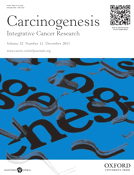Cancer Res: 研究发现癌症中免疫抑制的关键细胞MDSC
2012-01-29 MedSci MedSci原创
在一项调查癌症内免疫反应的研究中,来自佛罗里达州墨菲特癌症中心及南佛罗里达大学的研究人员发现,免疫系统抗原特异性CD4+ T细胞和髓系衍生抑制细胞(Myeloid derived suppressor cell,MDSC,在癌症相关的免疫抑制中发挥重要作用的一种细胞)的相互作用显著地改变了MDSC介导的抑制作用的性质.相反,在MDSCs与免疫系统CD8+ T细胞相互作用时并没有观察到这样的作用.
在一项调查癌症内免疫反应的研究中,来自佛罗里达州墨菲特癌症中心及南佛罗里达大学的研究人员发现,免疫系统抗原特异性CD4+ T细胞和髓系衍生抑制细胞(Myeloid derived suppressor cell,MDSC,在癌症相关的免疫抑制中发挥重要作用的一种细胞)的相互作用显著地改变了MDSC介导的抑制作用的性质.相反,在MDSCs与免疫系统CD8+ T细胞相互作用时并没有观察到这样的作用.
这项研究发表于新一期的《癌症研究》(Cancer Research)上,这个期刊由美国癌症研究协会出版。
据作者介绍,已经证实癌症中免疫反应不足是肿瘤逃逸的关键因素,并且髓系衍生抑制细胞(MDSCs,正常情况下抑制免疫系统,防止免疫系统攻击其它健康组织)能抑制抗肿瘤反应并在肿瘤相关的免疫异常中发挥着重要的作用。
此外,研究表明,MDSCs阻断了其它免疫系统细胞(如CD8+"杀手"T细胞)与不健康癌细胞表面外源抗原的结合(这样做可以对不健康癌细胞进行靶向标记)。"为了更好的了解癌症中免疫缺陷的生物学,我们对MDSCs抗原特异性的性质及它们引起抗原特异CD4+T细胞耐受的能力进行了研究,"通讯作者医学博士Dmitry Gabrilovich说。"我们发现抗原特异CD4+T细胞能够将MDSC转变成强大的非特异抑制,从而显著地加强MDSC的免疫抑制作用。但是,让我们惊讶的是,我们在CD8+T细胞中没有看到相同的反应。"
研究人员初步调查了在小鼠中建模的几种肿瘤,但侧重于2种特别感兴趣的模型。他们报告称,当主要组织相容性复合体II分子(MHC II,只存在于少数专门化的细胞类型上)和MDSC通过细胞与细胞的接触而进行联系时,MHC II在MDSC介导抑制作用的转换中发挥了作用。然而,这种作用依赖于MHC II的表达。
"这项研究首次表明,激活的抗原特异性T细胞能够通过将MDSC转换成非特异抑制来增强MDSC的免疫抑制作用,从而限制了机体装备强大免疫反应的能力,"作者总结道。
研究人员建议,他们的研究可能揭示了一种机制,可能作为一个"负反馈回路"旨在控制免疫反应在癌症中成为"失调"。
该消息由H.Lee莫菲特癌症中心及研究所提供。
S100A9 play a role in MDSC expansion and migration but not in their activation
homas Condamine, Pingyan Cheng, Je-In Youn, Myrna L. Ortiz, Thomas Vogl, Johannes Roth, and Dmitry I. Gabrilovich
Abstract: S100A9 is a pro-inflammatory molecule, secreted by myeloid cells, which has been reported to recruit leukocytes to the sites of inflammation or tumors. Up-regulation of S100A9 expression in myeloid progenitor cells was implicated in inhibition of DC differentiation and promotion of expansion of myeloid-derived suppressor cells (MDSC). These cells have been well described as a major component used by the tumor to be protected from the immune system. In order to determine if extracellular and intracellular S100A9 has similar effects on myeloid cell differentiation and function, we evaluated the effect of recombinant S100A9. Our results demonstrated that in contrast to overexpression of S100A9 in hematopoietic progenitor cell (HPC), the treatment of HPC with recombinant S100A9 did not affect their differentiation to mature macrophages, or dendritic cells. The same treatment does not affect the suppressive activity of MDSC purified from naïve or tumor-bearing mice either. However, recombinant S100A9 had strong chemotactic effect on MDSC. Interestingly, its effect on immature myeloid cells isolated from naïve tumor-free mice was substantially lower. Recently, it has been suggested that MDSC need two different signals: one – required for their expansion and inhibited differentiation of mature myeloid cells and the other one – for activation. Our data suggest that S100A9 may mediate first signals but not the second one. Intracellular up-regulation of S100A9 promotes expansion of MDSC and contributes to block of their differentiation, whereas extracellular S100A9 via cell receptors induce MDSC migration. A better understanding of how MDSC migrate into the tumor and how S100A9 is involved in this process could lead to the generation of new treatment aiming to block the migration of MDSC inside the tumor.
本网站所有内容来源注明为“梅斯医学”或“MedSci原创”的文字、图片和音视频资料,版权均属于梅斯医学所有。非经授权,任何媒体、网站或个人不得转载,授权转载时须注明来源为“梅斯医学”。其它来源的文章系转载文章,或“梅斯号”自媒体发布的文章,仅系出于传递更多信息之目的,本站仅负责审核内容合规,其内容不代表本站立场,本站不负责内容的准确性和版权。如果存在侵权、或不希望被转载的媒体或个人可与我们联系,我们将立即进行删除处理。
在此留言











#MDS#
65
#MDSC#
71
#研究发现#
72